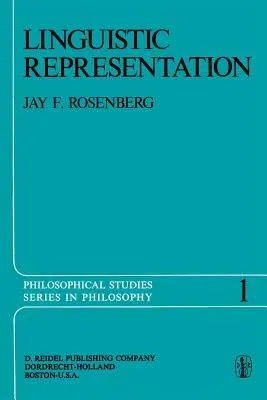J F Rosenberg
(Author)Linguistic Representation (Softcover Reprint of the Original 1st 1974)Paperback - Softcover Reprint of the Original 1st 1974, 30 September 1978

Qty
1
Turbo
Ships in 2 - 3 days
In Stock
Free Delivery
Cash on Delivery
15 Days
Free Returns
Secure Checkout
Part of Series
Philosophical Studies
Print Length
173 pages
Language
English
Publisher
Springer
Date Published
30 Sep 1978
ISBN-10
9027709467
ISBN-13
9789027709462
Description
Product Details
Author:
Book Edition:
Softcover Reprint of the Original 1st 1974
Book Format:
Paperback
Country of Origin:
US
Date Published:
30 September 1978
Dimensions:
23.39 x
15.6 x
0.97 cm
ISBN-10:
9027709467
ISBN-13:
9789027709462
Language:
English
Location:
Dordrecht
Pages:
173
Publisher:
Series:
Weight:
254.01 gm

